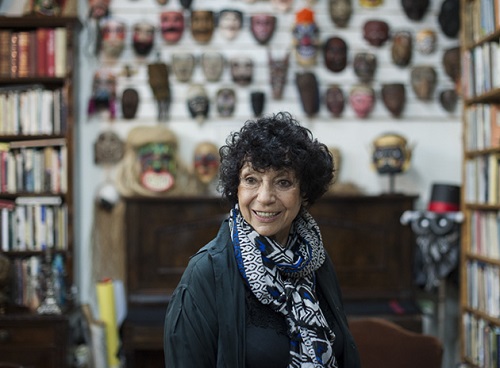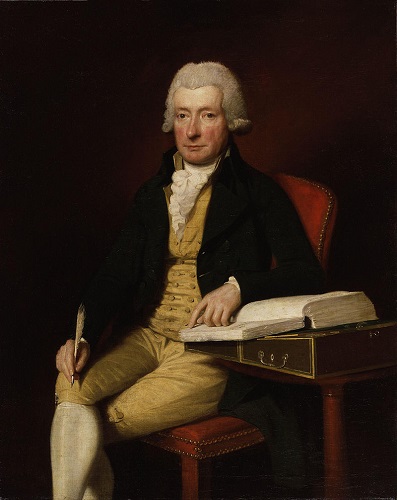De Argentijnse schrijfster Luisa Valenzuela werd geboren op 26 november 1938 in Buenos Aires. Zie ook alle tags voor Luisa Valenzuela op dit blog.
Uit: The Mañana (Vertaald door Marguerite Feitlowitz)
“I know it’s Sunday but I’ve lost all notion of dates. The men only mark a few days of the week: Mondays, Thursdays, Saturdays. Bastards. The air now has turned warm, it smells of spring. So it’s more than six months since they stormed in on us, in the middle of the dance, in the middle of the night. It was easy for them. We were sailing gently along, almost becalmed, the river barely slapping the sides of Mañana. Of the boat named Mañana, and also our Mañana, our future, because the day before we’d already realized how long five days afloat could be. But at the moment of the siege, we were celebrating like mad and they had no right, they had no right, a few of us screamed in the face of a few of them once the fracas cooled and we could grasp what had just happened. If they really and truly had to do it—if the order was so iron-clad—they could have chosen another moment, for example, unleashed themselves during one of our most heated arguments.
They did it deliberately during the dance, the best part of our conclave which among ourselves and with a good dose of irony we named the FimFen, First Confidential Meeting of Female Novelists. They threw themselves at us once our conflicts had been filed down, once we’d battled with language and played with it and trampled it and even splashed around in it as in preverbal times, and to celebrate all this we were dancing like crazy, really kicking it up, even Ophelia in her wheelchair was dancing…
In that very first sudden instant, we were happy to see them. Men! We were delighted, men! Like it was manna fallen from heaven. Totally the opposite. More like released from the river, from the tame and heavy water that had been our friend until that moment when the wide river turned traitor and allowed those minions to sneak onto our boat in their rubber boots, their black rubber boots, their black everything. Everything they wore was black, but their skin tones were every color—the youngest were darker, the ones in charge contemptibly white. But when sheathed in black they burst into the dining room—we’d moved the tables for the sarao—they looked divine. Especially a few, to a few of us, looked especially divine. A male body can be very good for dancing and other carnal pursuits. At least for some of us, like Ophelia who was the first who managed to get close, wheelchair and all.
Holy sh–! we yelled, come aboard! we yelled once the shock faded and we thought we could turn the tables and pounce on the men who just moments before had silently invaded our ship. Come aboard! we yelled, as though flipping the rules, though they looked less like pirates and more like the storm troops they really were. Adela, our DJ, switched to heavy metal and for a few instants we fantasized that these men in black had come to throw us in the air like the rock-and-roll of times past.”

De Engelse dichter William Cowper werd geboren op 26 november 1731 in Berkhamstead, Herford. Zie ook alle tags voor William Cowper op dit blog.
God gaat Zijn ongekende gang
God gaat Zijn ongekende gang
vol donkere majesteit,
die in de zee Zijn voetstap plant
en op de wolken rijdt.
Uit grondeloze diepten put
Hij licht en vreugd ‘uit pijn.
Hij voert volmaakt zijn plannen uit,
Zijn wil is soeverein.
Geliefden Gods, schept nieuwe moed,
de wolken die gij vreest,
zijn zwaar van regen, overvloed
van zegen allermeest.
Zoudt gij verstaan waar Hij u leidt?
Vertrouw Hem waar Hij gaat.
Zijn duistere voorzienigheid
verhult zijn mild gelaat.
Wat Hij bedoelt dat rijpt tot zin,
wordt klaar van uur tot uur.
De knop is bitter, is begin,
de bloem wordt licht en puur.
Hoe blind vanuit zichzelve is
het menselijk gezicht.
God zelf vertaalt de duisternis
in eindelijk eeuwig licht
Vertaald door Harm-Jan Breugem

Portret door Lemuel Francis Abbott, 1792
Zie voor nog meer schrijvers van de 26e november ook mijn blog van 26 november 2018 en eveneens mijn blog van 26 november 2017 deel 1 en eveneens deel 2.
